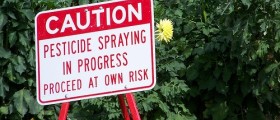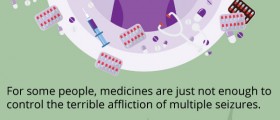
There is almost not a person in the world who has never heard of pesticides. Those few who are not aware of what pesticides are should know that their main purpose is to destroy insects, fungus, bacteria and every other thing that feed on crops. The main reason why these things need to be destroyed is because they are known to carry various diseases and in addition to that they destroy the crops. With the help of pesticides, farmers will protect the crops and they do not care if by doing that they will cause damage to the environment and even to the consumers.
What are pesticides designed for?
It is important to know that there are two main types of pesticides and they are chemical and biological. When biological pesticides are designed, those who make them use fungi, bacteria and various other organically present substances. It is not uncommon for some biological pesticides to be microorganisms. Consumers need to know that biological pesticides are not that damaging neither to the health of the consumers nor for the environment. On the other hand, chemical pesticides pose the real threat for both humans and animals and for the environment. Even though the danger is evident, there are no steps being taken by the government and the toxic substances are still allowed to be a part of chemical pesticides. Due to this fact, the scientists are always coming up with new poisons. There are two main classes of chemical pesticides and these are the broad-spectrum pesticides and narrow-spectrum pesticides. Farmers use broad-spectrum ones in order to destroy any kind of pests. On the other hand, narrow-spectrum pesticides are designed specifically to destroy a certain kind of pests. Some of the best known narrow-spectrum pesticides are avicides for birds and fungicides for fungi. A large number of pesticides work by killing directly on contact. Systemic pesticides do not do that. These pesticides will get inside of the plant and go all the way its absorption path. This way the pollen and nectar of the flower are poisoned. This is done in order for those who spread the pollen like bees and butterflies to be killed. Apart from the farmers and people who are constantly in contact with pesticides, there are some others who are exposed to the greatest danger from achieving toxic levels. Pesticides are dangerous due to the fact they are carried on the wind, leave residues on products, still dwell within products and animals and are not uncommon to end up in running water which will pollute public water supply and even endanger fish and seafood. It is important to know that pesticides enter the body easily through eyes, skin, mouth and nose and any person who is either present when the pesticides are used or uses them him or herself is at real danger of being exposed. When a person gets exposed it does not automatically mean that he or she will suffer from certain effects. All people are differently resistant to the chemicals. Some people may remain unaffected while others may experience serious illnesses from the same levels of exposure. There are some reactions which are most commonly seen after people get exposed. Some of these reactions are fatigue, headaches, skin irritations, nausea, vomiting, breathing problems, blood disorders, damage to the kidneys, liver and reproductive system, cancer and in some cases even death.
What health impact do they have on human life?
There are a lot of consequences which people may experience if they get exposed to dangerous chemicals which pesticides contain. Asthma is one of the most common health problems that a male farmer may experience. The problem is that even children may get endangered because the chemicals remain on the clothes and equipment of the farmer when he returns home from work. Birth defects are a serious possibility. Pregnant women need to avoid being exposed to pesticides at all cost. The researchers have proved that a commonly used pesticide called chlorpyrifos causes serious birth defects in children who were exposed to it when they were still in utero. Neurological effects are highly possible due to exposure to pesticides. It is not uncommon for people to suffer from dizziness, lightheadedness, confusion and have their coordination and the ability to think seriously reduced when they are exposed to the chemicals found in pesticides. All of these effects do not last for a long time but it is important to know that there are those which are permanent. Brain damage can lead to reduced IQ and learning disability. Those who work with pesticides need to know that cancer is a strong possibility as well. The data claims that childhood cancer has increased and is still increasing. The type of cancer which increased the most is childhood brain cancer. In addition to all these effects, hormone disruption is possible as well when a person gets exposed to pesticides. Relevant statistical data
According to the data in China, every year half a million people suffers from pesticide poisoning and 500 people die because of it.





_f_280x120.jpg)











Your thoughts on this
Loading...